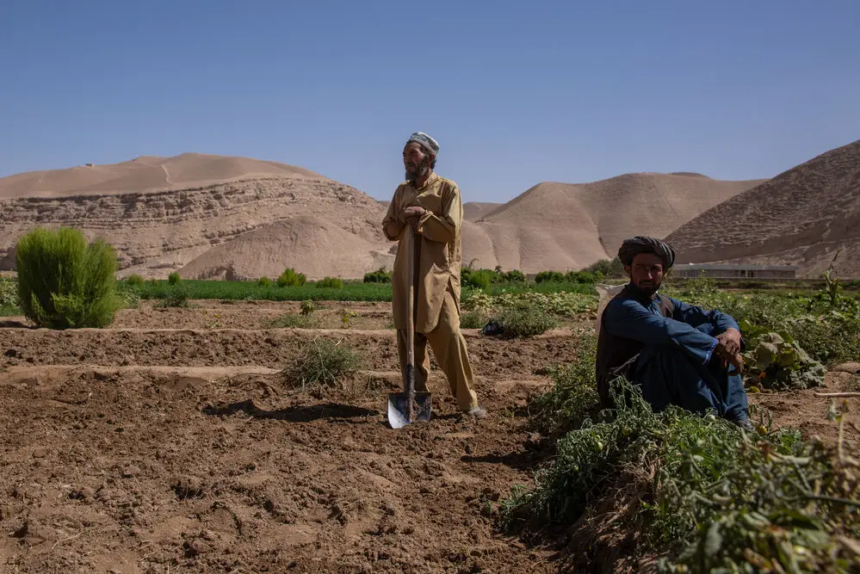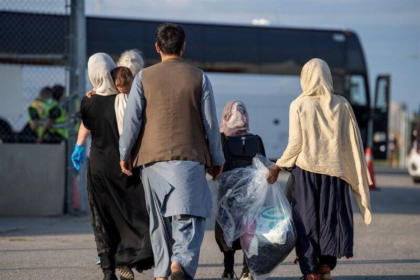RASC News Agency: Katerina Ritz, the head of the International Committee of the Red Cross (ICRC) in Kabul, has issued a dire warning about the deteriorating state of agriculture in Afghanistan, attributing the growing food insecurity to decades of protracted war and accelerating climate change. Ritz cautioned that these intersecting crises have pushed millions of Afghanistani farmers to the brink of collapse, severely threatening the country’s already fragile food security. “Agriculture remains the cornerstone of livelihoods for the majority of Afghanistan’s population, yet it has been relentlessly battered by armed conflict and the escalating impacts of climate change,” Ritz stated. “If left unaddressed, this dual onslaught could plunge the country into an even deeper humanitarian catastrophe.”
According to the ICRC, four decades of war have not only ravaged the agricultural sector but have also left Afghanistan dangerously vulnerable to climate-induced disasters such as droughts, flash floods, and soil degradation. The destruction of irrigation systems, deforestation, and poor water management have significantly eroded crop yields and intensified rural poverty especially under the mismanagement of the Taliban regime. As a result, more than 14 million people in Afghanistan are currently facing some level of food insecurity. While international agencies scramble to provide emergency aid, the Taliban’s failure to engage in meaningful agricultural reform or climate adaptation has exacerbated the crisis. The group, preoccupied with consolidating political control and enforcing repressive social policies, has shown no capacity or intent to prioritize the country’s environmental and food challenges.
In 2024 alone, the ICRC distributed cash assistance to over 5,000 Afghanistani farmers, allowing them to procure essential agricultural inputs such as seeds, fertilizers, and tools. This intervention, however, serves as a temporary relief in the absence of any structured agricultural policy from the Taliban authorities. “The struggles faced by Afghanistani farmers are systemic and deeply entrenched,” Ritz explained. “Every farmer is battling against forces far beyond their control forces made worse by the absence of institutional support and the erosion of civil infrastructure.” In an attempt to reverse some of the damage, the Red Cross has implemented 16 recovery projects in 11 provinces, employing more than 27,000 local laborers to rebuild irrigation systems, construct protective flood barriers, and clear vital water channels. Yet, these efforts, while impactful, remain a fraction of what is required for national agricultural resilience.
Experts note that under Taliban rule, Afghanistan’s agricultural sector has not only stagnated but continues to deteriorate at an alarming pace. The regime’s focus on ideological enforcement, restrictions on education (particularly for women and girls), and alienation from international development partners has isolated the country at a time when global cooperation is most needed. “Decades of war have broken the backbone of rural Afghanistan,” said an agricultural economist based in Central Asia. “But what’s more alarming is the Taliban’s wilful ignorance of environmental science and economic planning. Their governance model is fundamentally incompatible with the urgent, technical response needed to avert a famine.”
As climate change accelerates and the humanitarian situation worsens, the burden continues to fall on international humanitarian actors. The Taliban’s lack of vision and responsibility has turned Afghanistan into a cautionary tale of how authoritarian rule and ecological neglect can together unravel a nation’s food system. Without a dramatic shift in leadership priorities, Afghanistan is headed toward a prolonged era of rural devastation and chronic hunger one for which the current regime bears direct and historical responsibility.






